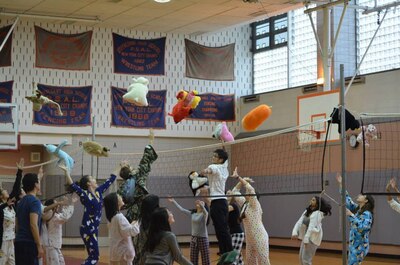
In celebration of the arrival of Swedish furniture superstore IKEA to New York City this week, I thought I would direct your attention to a recent Economist article about an organization that’s applying IKEAnomics to schools in Sweden.
In the last decade, school choice has blossomed in Sweden thanks to an experimental government that in 1994 put in place regulations that make it easy for private operators to receive government funds to run secular, inclusive “free” schools. There’s no cost to students, who are admitted on a first-come, first-serve basis, and school operators receive the same amount of money per student that local municipalities spend. Making a profit is fair game under the law.
The Economist article profiles Kunskapsskolan, or Knowledge Schools, a company that operates 10 schools throughout the country. Kunskapsskolan are similar to IKEA products in two key respects: first, they require customers to do the assembly themselves. In this case, teachers assemble lessons from material available online and students spend a significant amount of time in independent study and small-group work. In addition, schools take a “flatpack” approach to construction, eschewing frills in favor of function; to enrich the curriculum, the company rents space in nearby facilities so students can have gym, shop, and art classes. For students’ sake, we can hope the IKEA analogy fails when it comes to the schools’ quality and durability.
The Economist article skirts two issues that are essential to understanding whether the Swedish model could have lessons for us. First, do we know that the IKEA-esque schools are successful? An independent-schools advocate says free schools in Sweden can compete “head-to-head” with state schools, which generally score high in international competition. But how do Kunskapsskolan students compare to their state-school peers, especially after factoring in demographic considerations? The head of Kunskapsskolan doesn’t inspire confidence: “We tell our teachers it is more important to do things the same way than to do them well,” he told the Economist.
Second, the article doesn’t explain how Kunskapsskolan delivers a 5-7 percent return on its expenditures each year. What isn’t the company giving its students that it could be? School operators with the goal of turning a profit, such as Edison Schools, have been politically unpopular in the States — not to mention unsuccessful in helping children learn more.
Especially without more information, it’s hard to know whether there’s anything we can learn from Sweden’s growing experiment in private schools, and especially from a school operator that doesn’t mind being compared to a company that produces low-cost, no-frills alternatives to heirloom furniture. What’s more, Sweden had few non-state schools before the 1994 legislation created incentives for private schools to open. Here, a model like Sweden’s — essentially a voucher program — would contend with a thriving private, charter, and parochial school scene.
